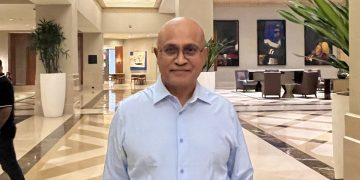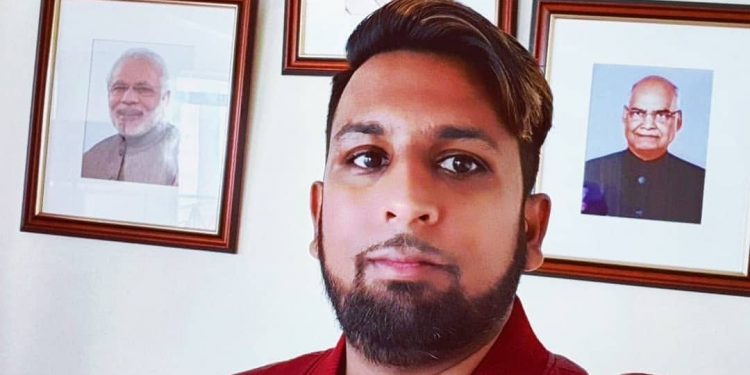During the debate of the Prime Minister’s Pension Act in the House of Representatives on Friday, June 20th, 1969, the Member for Naparima South, Mr. Alloy Lequay contributed on behalf of the representative of Pointe-a-Pierre, Mrs. Lilias Wight, who was absent from the Chamber that day. The point that he was compelled to make was for the inclusion of a provision that would guarantee the same privileges to a widower of a female Prime Minister that was being offered to the widow of a male one. While there is very little supplemental information to go off on, given the time period, from the Hansard records which only present the words of Mr. Lequay that day, but from this context it seems that the notion that there would one day be a female Prime Minister was regarded as a highly unlikely scenario.
Said Mr. Lequay, “with all due respect to Mr. (Kamaluddin) Mohammed, that the possibility of having a woman Prime Minister should not be considered as being remote, and therefore provision should be made for a widower. Now, before the sitting, I discussed this point with the Leader of the House, and he said this would be creating a precedent. I do agree with him, but I thought, in fairness to the hon. Member for Pointe-a-Pierre who is unavoidably absent, and having given her the assurance that I would make the point, opportunity should be taken to make it.”
As such, it is weird having to look back at this level of apprehension and skepticism of such a string taking place when we are living in the second term of a female Prime Minister while penning this.
That said, there was very little debate on the Prime Minister’s Pension Act in the House when it was first presented, mostly because these members would have discussed it ad nauseum during the Special Select Committee that introduced the Report to Parliament, and the House Committee that further amended it. But there was a fair amount of consideration given to it when it arrived in the Senate, and it is surprisingly not too dissimilar to the conversations taking place today.
You see, in the Report of the Special Select Committee it was stated from the get-go that there should be no external qualification placed on the Prime Minister in receiving his pension, which is a point that the Attorney General made mention of thusly: “the Prime Minister automatically becomes entitled to a pension on his ceasing to hold the office, irrespective of whether he held it for one day or not.”
It appears that Mr. Karl Hudson Phillips may have had some precognitive abilities to know that one day in the future that very thing would occur. Of course, not all the Senators debating this Act that day would agree with this sentiment, and many of them would voice their concerns during the debate.
Most notably was Senator Jeffrey Stollmeyer who rose specifically to address this point and suggest that the Act be amended to have the Prime Minister serve at least a single year in office to qualify. Senator Mark Julien rose immediately after to suggest that a pension should not be given to any and all future Prime Ministers automatically and should be considered on the performance of the office holder on a case-by-case basis. He then went on to pay considerable tribute to Dr. Eric Williams for the rest of his contribution however, in an attempt to explain why he deserves a pension more than anyone in the current Parliament, and presumably future ones as well.
And this brings me to my most important finding because the Prime Minister’s Pension Act might be the most unique legislation brought to Parliament. While it remains to serve all the Prime Ministers who have been elected subsequently, this debate actually reveals that this was only ever meant to provide for Dr. Eric Williams. Multiple Senators took to the floor and stated this openly, namely Senators Ramzan Ali, Thomas Bleasdell, Conrad O’Brien and Dr. Ada Date-Camps. All of them, in their very brief statements, singled out Dr. Williams as the sole reason for their support of this legislation, as they found him to be deserving of the reward for his years of hard work. It is therefore greatly ironic that Dr. Williams would be the only Prime Minister so far not to have benefitted from the legislation, given that he tragically died while still in office.
But to the matter of Stuart Young and whether he deserves to collect the pension now that his stint as Prime Minister is behind him, and it is highly doubtful that he will ever return to office. And the thing about it is that, while many are looking at the amount of time spent in office as the disqualifying factor, the real issue is in regard to the level of service that he provided in that time. While the legislators who enacted the legislation were keen to disregard the amount of time that a Prime Minister serves given the nature of politics, the one thing that they could all agree on was that any person who was to receive this pension was to have delivered a level of service on par or superseding that of Dr. Williams, and that does not only include the time spent as PM but in their entire career as a parliamentarian.
As such, I don’t know that even the most ardent supporter of Stuart Young would ever dare make the claim that Stuart Young’s service was either equal to or greater than that of Dr. Eric Williams; and I think the electoral defeat he received as PM is a near-unanimous indictment from the electorate which only cements that fact.
Best regards,
Ravi Balgobin Maharaj




































































